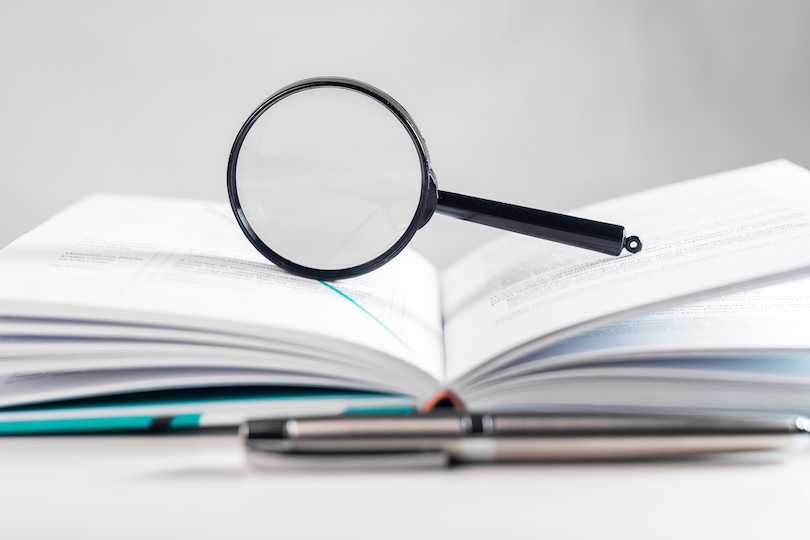Even after greater than 40 years of analysis, this pursuit nonetheless makes us really feel insecure in ways in which we will now anticipate. We wrestle most commonly and persistently with the query of how our analysis can or ought to acquire which means. We get our share of the sorts of questions that scientists ask one another at conferences, workshops or in peer evaluations: ‘After which?’ ‘What’s the level of your analysis?’ or ‘What’s your analysis downside?’ We’ve got additionally repeatedly requested related questions. Surprisingly, regardless of the deal with the which means of analysis, we discover that researchers generally discover one another’s analysis fairly pointless.
Once we reviewed the preferred strategies books in political science and worldwide relations a number of years in the past, we had been struck by the scant steerage for answering the “so what” query. It primarily got here all the way down to highlighting the existence of gaps and/or addressing urgent real-world issues. Nonetheless, the hole arguments usually fail to elucidate why it’s crucial to fill these gaps. Perhaps the hole exists for a great purpose! Furthermore, a deal with real-world issues doesn’t inherently distinguish between scientific work and that of civil servants, journalists or analysts. Different strategies textbooks didn’t handle the “and the way” query in any respect, seemingly implying that rigorous methodology alone confers which means on analysis.
That is why we printed an article a number of years in the past with the purpose of serving to graduate college students determine the which means of their analysis by creating puzzles. Many scientists and college students appeared to understand it and it has been accessed greater than 85,000 occasions on the journal’s web site. Nonetheless, some graduate college students and colleagues expressed frustration and criticism of the recommendation within the article. Some commented that we conceptualized analysis issues too narrowly and that the recommendation was too technical. Others criticized the article for forcing a particular methodology for establishing puzzles and for insinuating that supervisors and lecturers might develop puzzles with relative ease, whereas it is likely to be more difficult for graduate college students.
Regardless of being professors, we started to fret in regards to the steerage we had been attempting to supply within the article and the which means of our personal argument. Likewise, we continued to grapple with the which means of our analysis extra broadly, and struggled to formulate the type of sharp analysis puzzles we had advocated. Over time, nevertheless, we started to confront and ultimately embrace our concern and take a look at to determine what it was telling us. We started to ask ourselves and one another extra critically why some folks had been crucial of or pissed off with the article. We realized that it is likely to be difficult for some graduate college students to formulate a compelling analysis downside, not solely regardless of but in addition due to our recommendation. Maybe our considerably technical steerage inadvertently appeared that developing with a analysis downside was a easy process, particularly for college kids lucky sufficient to have a very astute supervisor. Maybe it elevated somewhat than alleviated their anxiousness.
This concern, doubt, self-reflection, and questioning ultimately led us to provide you with a brand new thought: that the method of creating a analysis downside is fraught with advanced feelings, particularly concern. At this level, we have now tentatively formulated a brand new analysis downside: ‘Why is it so difficult to assemble a compelling analysis downside regardless of current pointers on this subject?’ We’ve got formulated a preliminary reply: that emotional dimensions are intertwined with the development of a analysis downside, however haven’t but obtained adequate consideration. Most significantly, we got here to acknowledge that concern is a pure and regular characteristic of the analysis course of. As soon as we got here up with this concept, we began creating it additional, consulting numerous literature.
As a product of our personal anxious wrestle, we just lately printed an article. In it, we draw on Jacques Lacan’s psychoanalytic principle to make clear the resistance to analysis issues – the tendency to masks or downplay fears – but in addition to argue for a steady and thorough examination of established truths, in addition to of 1’s personal assumptions and ideas. , theories and claims. Basically, we imagine that graduate college students and researchers ought to settle for concern as a companion that may foster creativity, somewhat than seeing it as an impediment to be prevented in any respect prices.
Within the article, we additionally advise graduate college students and researchers to establish conditions or phenomena that defy standard expectations or include counterintuitive, puzzling, or inadequately defined parts, and to make use of narrative approaches to formulate analysis issues round them. Nonetheless, as a result of such a narrative might not materialize on the primary attempt, graduate college students and scientists should be ready to revise and refine their analysis issues throughout every challenge, in mild of latest observations and questions from themselves and others. So they have to embrace the evolving nature of their analysis story. The ultimate model of the story, which seems within the publication, can solely be formulated after the very fact.
Our article doesn’t fake to supply the ultimate answer to analysis downside technology. As a substitute, it acknowledges the inherent incompleteness and uncertainty of information. Nonetheless, this doesn’t imply that we should always hand over the pursuit of latest data, however that we should always go deeper into it by going through our fears.
Learn extra about e-international relations

